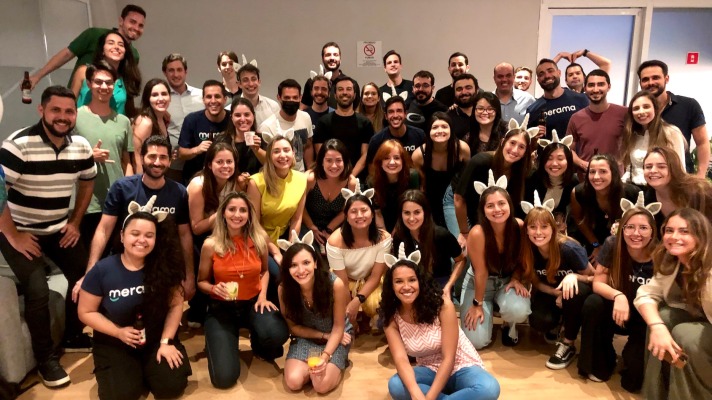When it comes to investment in e-commerce aggregators in Latin America lately, when it rains, it pours.
Merama, which acquires or launches Latin American digital brands, hit a $1.2 billion valuation — just 12 months after incorporation — following a new $60 million follow-on investment led by Series B investors Advent International and Softbank. It also comes a day after fellow LatAm e-commerce aggregator Quinio announced $20 million in initial funding to acquire some 30 companies.
The investment follows a $225 million Series B investment, announced in September, that put the Mexico- and Brazil based-company at an $850 million valuation. At the time, the company touted it as “the largest Series B round ever raised in Latin America.”
We first profiled Merama back in April when it burst onto the e-commerce aggregator scene with $160 million in a combined debt-and-equity seed and Series A round. In total, the company has raised $445 million, of which $345 million is equity and $100 million is debt.
The company was co-founded by CEO Sujay Tyle, co-founder and former CEO of Frontier Car Group; Felipe Delgado, previously CEO of Beetmann Energy; Olivier Scialom, co-founder and former COO of Petsy; Renato Andrade, previously associate partner at McKinsey; and Guilherme Nosralla, former head of growth at Wildlife Studios.
“Latin America is the fastest growing e-commerce region in the world yet brands are extremely nascent or non-existent,” Tyle told TechCrunch via email. “Merama believes several multi-billion dollar brands will be created in LatAm over the next five years.”
Today, Merama has more than 180 employees and a portfolio of 20 brands across Mexico, Brazil, Chile, Colombia and Peru. It is poised to sell over $250 million of product merchandise this year, and will be “significantly cash flow positive,” Tyle said.
Its prominent brands include Mexican consumer electronics company Redlemon and Bebesit, a baby products seller in Chile. Overall, the $85 billion e-commerce market in Latin America is growing rapidly, with projections of it reaching $116.2 billion in 2023.
Aside from acquiring digital brands, the company launches its own as well as developing automation and scalability tools to help them grow across Latin America. It also plans to monetize the underlying technology it is building that automates brand management and supply chain.
The latest funding will enable the company to expand into Argentina and the United States. Merama also rounded out its executive team with the hires of former Mandae CTO Danilo Ferreira as Merama’s CTO, and former MercadoLibre director of marketplace Ignacio Nart, to be senior vice president of private label.
Overall, e-commerce aggregators have gained traction across the world in the past few years, with successful companies securing billions of venture-backed capital in recent years. In addition to Quinio, Beijing-based Nebula Brands took in $50 million this week.
Before them was Gravitiq, focused on healthcare brands, and Heyday’s $555 million Series C. The big name in aggregators, Thrasio, announced $1 billion in October, while Perch grabbed a large investment of $775 million in May.
Different from Thrasio and Perch, Tyle explained that “Latin America is a growth story and thus Merama focuses on significantly fewer brands and is focused on scale and expansion. The goal is to have a single category leader in each major e-commerce category rather than consolidate hundreds of brands.”
The funding also helps the company to launch Merama Labs, touting it as “the first-of-its-kind Latin American incubator for direct-to-consumer brands.” The internal incubator will create new D2C brands in categories like fashion, cosmetics, supplements and beverages. It is a new growth channel that incubates and launches digital D2C brands in multiple categories in-house.
“We will create brands alongside influencers,” Tyle added.
Credit: Source link


Comments are closed.